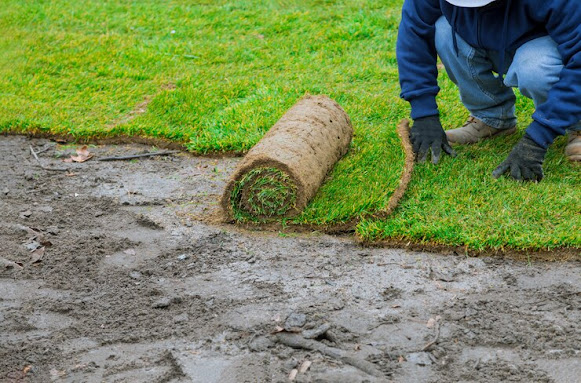Cleaning Landscape Rocks: Common Mistakes To Avoid
Cleaning Landscape Rocks: Common Mistakes To Avoid can save you time and protect your garden. One common mistake is using harsh chemicals that damage plants. Another is applying too much pressure washing, which can break rocks. Many people also forget to rinse properly after cleaning. Using bleach or strong acids can harm the soil and nearby flowers. Cleaning too rarely causes stubborn buildup that becomes difficult to remove. Avoiding these mistakes ensures safe and effective rock cleaning.
Why Cleaning Landscape Rocks Matters
Landscape rocks don’t just add beauty; they serve functional purposes like erosion control, weed prevention, and structure in your outdoor design. However, if they’re left dirty, they can:
Make your yard look neglected.
Encourage moss, algae, or weed growth.
Diminish the overall impact of your landscaping investment.
Cleaning them seems straightforward, but the wrong methods can actually backfire. That’s why knowing the mistakes homeowners make when cleaning rocks is just as important as knowing the right techniques.
Common Rock Cleaning Errors That Damage Landscaping
What Is Edging In Landscaping This is a question many homeowners ask when thinking about maintaining clean and polished outdoor spaces. While edging defines the borders of your flowerbeds, lawns, and rock features, it’s equally important to know how to care for the rocks themselves. Clean landscape rocks can dramatically enhance curb appeal, but unfortunately, many people unknowingly make errors when trying to keep them spotless. At Lakota Design Group, we’ve seen firsthand how small mistakes can lead to costly repairs, dull stones, or even damaged landscaping features. This article explores common pitfalls when cleaning landscape rocks and provides smart ways to avoid them.
Using Harsh Chemicals
One of the most frequent rock cleaning errors that damage landscaping is using strong chemicals like bleach or industrial cleaners. While they may quickly remove stains, they can:
Kill surrounding plants and grass.
Discolor or weaken certain stone types.
Leave harmful residues that affect soil health.
Instead, gentle solutions like vinegar mixed with water or eco-friendly cleaners are safer alternatives.
Relying Too Much on Pressure Washing
Pressure washers can seem like a quick fix, but too much force can crack delicate stones, strip natural finishes, or even scatter rocks out of place. This is one of the most overlooked mistakes homeowners make when cleaning rocks.
If you must use a pressure washer, keep the setting low, hold the nozzle at an angle, and maintain a safe distance from the surface. Lakota Design Group often recommends hand washing or a garden hose for most decorative stones.
Ignoring Rock Type Differences
Not all rocks are created equal. River rocks, pea gravel, and white decorative stones all require different care. A method that works for one type might cause damage to another. For instance:
Porous stones can absorb chemicals.
Smooth rocks may show scratches from wire brushes.
Lighter stones easily discolor if exposed to strong detergents.
Understanding your stone type is essential if you want to learn how to avoid ruining outdoor stones during cleaning.
Overlooking Proper Edging and Containment
Without strong edging, your rocks can scatter across soil or grass during cleaning. Many homeowners focus solely on washing, forgetting that edging is just as crucial. Professional landscape edging keeps rocks in place, protects plant beds, and makes cleaning easier. Companies like Lakota Design Group stress that proper edging design reduces long-term maintenance hassles.
How To Avoid Ruining Outdoor Stones During Cleaning
Now that we’ve explored the most common errors, let’s look at safer, smarter cleaning methods.
Gentle Cleaning Techniques
Use a garden hose with moderate pressure.
Scrub gently with a soft-bristle brush for stubborn spots.
Apply mild vinegar-and-water solutions for algae or moss.
Seasonal Maintenance
Instead of waiting for rocks to get extremely dirty, clean them lightly every few months. This prevents buildup and avoids the need for harsh cleaning methods.
Protect Surrounding Plants
Before cleaning, cover delicate plants with a tarp or sheet. This prevents accidental damage from splashing water, soap, or debris.
Regular Edging Inspections
Since what is edging in landscaping also applies to maintenance, check your stone borders regularly. A strong edge keeps everything contained, ensuring your cleaning efforts last longer.
Lakota Design Group’s Professional Advice
At Lakota Design Group, our experts emphasize that keeping landscape rocks clean isn’t just about aesthetics — it’s about protecting your investment. By avoiding common rock cleaning errors that damage landscaping, you preserve the beauty and function of your outdoor spaces.
Our professional services in landscape design San Jose focus not only on layouts and rock placement but also on long-term maintenance solutions. Whether it’s choosing the right edging materials, selecting durable stones, or recommending eco-friendly cleaning practices, Lakota Design Group ensures your landscape stays pristine.
Mistakes Homeowners Make When Cleaning Rocks – A Recap
Here’s a quick summary of the biggest errors to avoid:
Using harsh chemicals that harm plants and soil.
Over-relying on high-pressure washing.
Treating all rock types the same way.
Forgetting about proper edging and containment.
Remember, learning how to avoid ruining outdoor stones during cleaning is about patience and choosing the right tools.
Landscape Design San Jose: Why Local Expertise Matters
For homeowners in landscape design San Jose, professional help can make all the difference. Rocks in California landscapes face unique challenges such as hard water stains, dust, and seasonal rains. Working with a team like Lakota Design Group ensures your rocks are cleaned using the right methods while keeping your overall design intact.
Final Thoughts
Keeping landscape rocks clean enhances your curb appeal and protects your outdoor investment. However, avoiding the mistakes homeowners make when cleaning rocks is just as important as the cleaning process itself. From being cautious with pressure washers to respecting different stone types, every detail matters.
If you want your landscaping to remain beautiful all year round, consider professional support. Lakota Design Group specializes in creating and maintaining stunning landscapes that stand the test of time. For expert advice, eco-friendly solutions, and flawless rock care, don’t hesitate to contact us today.
FAQs
1. Can vinegar damage my landscape rocks?
No, when diluted properly, vinegar is safe for most rock types. However, avoid overuse on porous stones as it can seep in and cause discoloration.
2. How often should I clean decorative rocks in my yard?
Light cleaning every three months is ideal. For heavily used areas or after storms, you may need more frequent maintenance.
3. Is professional rock cleaning worth the cost?
Yes, especially if you have delicate or large-scale landscaping. Professionals like Lakota Design Group know how to clean rocks safely while preserving edging and plant life.


Comments
Post a Comment